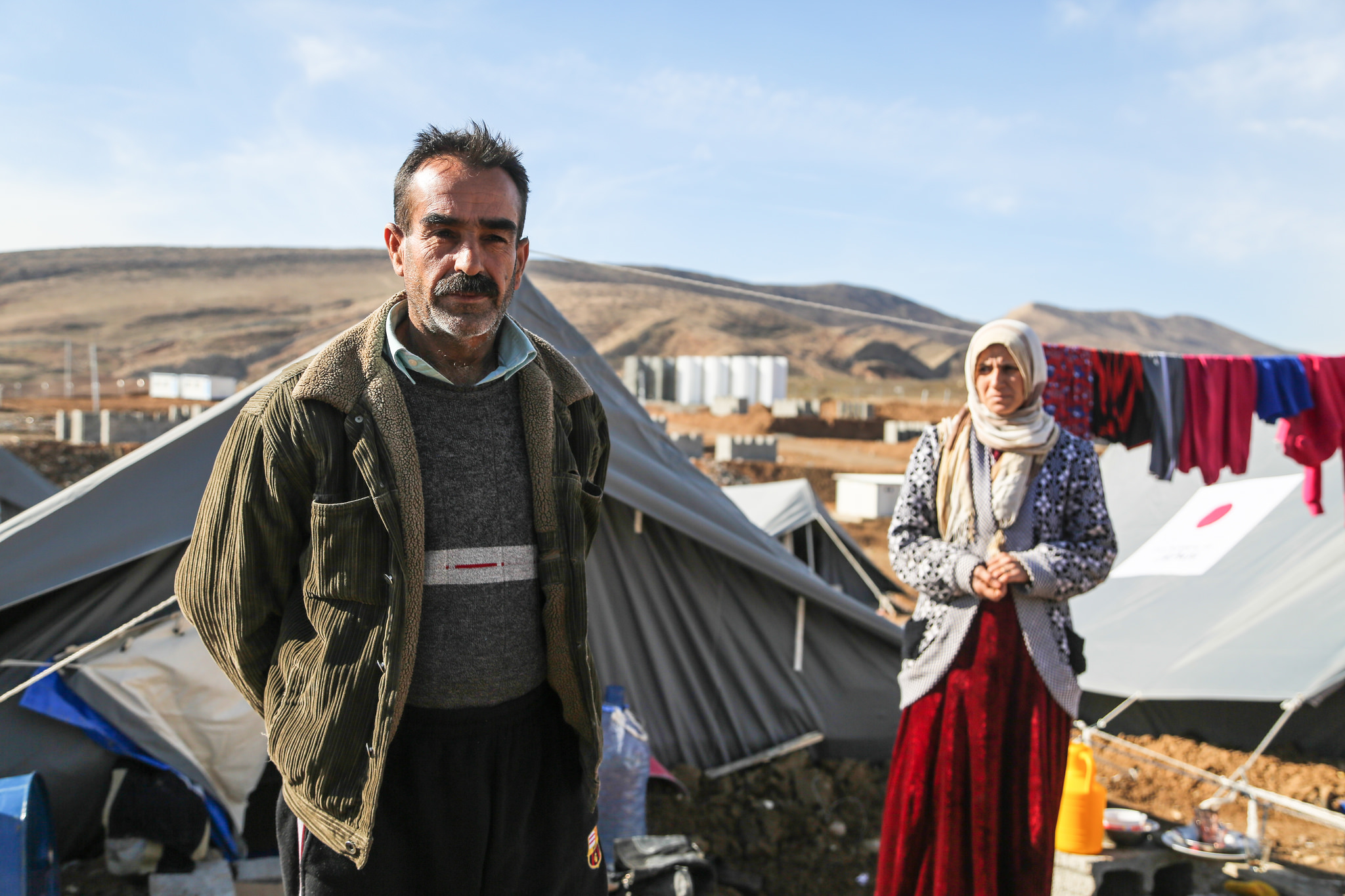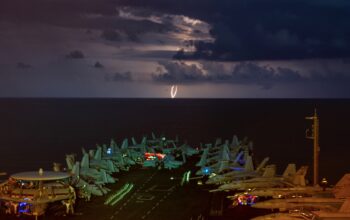Since the twelfth of November 2015 a rather unusual event at the Danish-Swedish border has been taking place. It has become the subject of systematic border control, and while control at a border might not seem as that big of a deal, this particular border has not been the subject of border control in over 62 years – a timespan longer than
most of the passengers are old. What could have provoked such a extreme reaction from the Swedish government? The answer is what has caused several members of the European Union to sacrifice its holy cow, which is the free movement guaranteed by the Schengen agreement – an agreement, which is said to have brought economic growth to the members. A core value in the Union since its funding as the European coal and steel union following the aftermath of the Second World War. Therefore, whatever is causing this must be a matter of absolute urgency. How complex the situation may be, the answer is a simple but large number. One million; the number of refugees which is said to have had arrived in Europe throughout 2015. The highest recorded number since the Second World War, and this is of course without the even greater number within the regions themselves. Even though it is a great number, and one refugee is without a doubt one too many, it pales compared to the 523 million citizens within the union – 523 million citizens who are living in the most affluent region of the world.
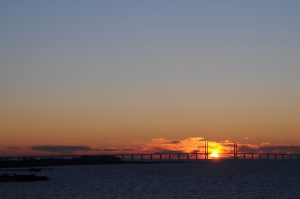 Surely affluent countries such as those in the Union could spare the money and effort it would take to give those fleeing from war and poverty a home and a stable, safe environment. Listening to the on-going negotiations one should think not. The situation is at a deadlock with countries like Germany and Sweden together with EU president Donald Tusk fighting a seemingly lost fight with the rest of the Union. It has become every country for itself. Poland, one of the biggest countries in the union and home country of EU president Tusk, have only taken a selected number of refugees – all Christian Syrians of course. This kind of behaviour has left the rest of the refugees to the charity and open arms of Germany and Sweden and dirty, inhumane refugee camps on the frontiers of the union. Refugee camps that have been criticised by the UN for their horrible conditions, and open arms that are slowly closing as Sweden is controlling its borders to Denmark and returning anyone without papers and Germany threatening to do the same.
Surely affluent countries such as those in the Union could spare the money and effort it would take to give those fleeing from war and poverty a home and a stable, safe environment. Listening to the on-going negotiations one should think not. The situation is at a deadlock with countries like Germany and Sweden together with EU president Donald Tusk fighting a seemingly lost fight with the rest of the Union. It has become every country for itself. Poland, one of the biggest countries in the union and home country of EU president Tusk, have only taken a selected number of refugees – all Christian Syrians of course. This kind of behaviour has left the rest of the refugees to the charity and open arms of Germany and Sweden and dirty, inhumane refugee camps on the frontiers of the union. Refugee camps that have been criticised by the UN for their horrible conditions, and open arms that are slowly closing as Sweden is controlling its borders to Denmark and returning anyone without papers and Germany threatening to do the same.
The crisis has shown to the world, the fragility of the European Union. For as long as there is economic growth, national gain, Erasmus education and agricultural subsidies in sight the cooperation is almost endless. But when it comes to spending money or effort with no gain in sight the cooperation seems to vanish completely. The current crisis combined with the rise of right wing nationalist extremists and an increased scepticism towards the Union, exemplified by the upcoming British referendum, it can seem very unclear how the Union will recover. Some optimists suggest that the European Union will arise strengthened from its ordeals, when the members realise that they are stronger together then on their own. This remains to be seen, and the result of the British referendum will surely have a huge influence on the Unions continuing ordeals.
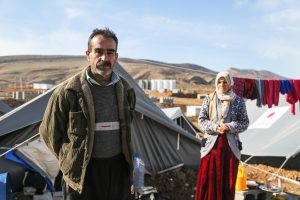 However, it is not only the Schengen agreement that has been sacrificed. Another core value is under pressure, the jewel in the European crown – the freedom of speech and the free press. German comedian Jan Böhmermann said on live television that the Turkish President Erdogan had a small penis and possessed several other unattractive traits – which is nothing more than most other prominent politicians in Europe have been a victim off through their career. Normally this would not have been an issue, if the European Union was not in on-going negotiations with Turkey, and the German legislation forbids the slander of foreign officials. Furthermore, one could argue that Erdogan has a different definition of freedom of speech than most of his European counterparts. Erdogan has threatened to leave the negotiations, if nothing happens. The matter should be straightforward. However, it has left the mighty Merkel in a pinch, as the agreement with the Turkish is of utmost importance for the Union, and while the Germans are avoiding a diplomatic crisis, the rest of Europe is awaiting the verdict. So now, the European Union and Merkel have descended from the high horse, and Böhmermann is taking a break from the media while awaiting a subpoena from the Turkish government.
However, it is not only the Schengen agreement that has been sacrificed. Another core value is under pressure, the jewel in the European crown – the freedom of speech and the free press. German comedian Jan Böhmermann said on live television that the Turkish President Erdogan had a small penis and possessed several other unattractive traits – which is nothing more than most other prominent politicians in Europe have been a victim off through their career. Normally this would not have been an issue, if the European Union was not in on-going negotiations with Turkey, and the German legislation forbids the slander of foreign officials. Furthermore, one could argue that Erdogan has a different definition of freedom of speech than most of his European counterparts. Erdogan has threatened to leave the negotiations, if nothing happens. The matter should be straightforward. However, it has left the mighty Merkel in a pinch, as the agreement with the Turkish is of utmost importance for the Union, and while the Germans are avoiding a diplomatic crisis, the rest of Europe is awaiting the verdict. So now, the European Union and Merkel have descended from the high horse, and Böhmermann is taking a break from the media while awaiting a subpoena from the Turkish government.
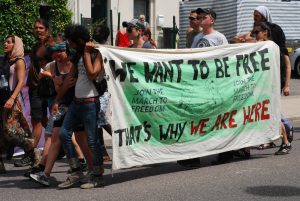 This might seem insignificant if viewed only as the voluntary silence of a rude comedian, but it runs deeper than that. It questions who we are as a people, which values we represent and to what length we are ready to defend them even when it is under pressure. It makes us question how alike we really are, or whether it was just a pipe dream in the first place. And at the moment it seems that the return of refugees to Turkey is more important, than the freedom of speech and the free press. This question is getting even more complex as it shows the differences between the countries within the European Union about the definition of freedom of speech. So while for many years it has seem as the Union was on a steady road to unison without major bumps or setbacks, this has changed majorly. So the question remains, how will the European Union recover, not from the temporary setback of inter-European cooperation, but from the attacks on its very foundation? The idea of Europe as a unit, and not as individual countries.
This might seem insignificant if viewed only as the voluntary silence of a rude comedian, but it runs deeper than that. It questions who we are as a people, which values we represent and to what length we are ready to defend them even when it is under pressure. It makes us question how alike we really are, or whether it was just a pipe dream in the first place. And at the moment it seems that the return of refugees to Turkey is more important, than the freedom of speech and the free press. This question is getting even more complex as it shows the differences between the countries within the European Union about the definition of freedom of speech. So while for many years it has seem as the Union was on a steady road to unison without major bumps or setbacks, this has changed majorly. So the question remains, how will the European Union recover, not from the temporary setback of inter-European cooperation, but from the attacks on its very foundation? The idea of Europe as a unit, and not as individual countries.
By Christina Vibeke Holck-Clausen
Image credit:
Picture 1: Jonas Evertsson, licensed under CC BY-NC-ND 2.0
Picture 2: International Organization for Migration, licensed under CC BY-NC-ND 2.0
Picture 3: afrique-europe-interact Bremen, licensed under CC BY-NC-ND 2.0
